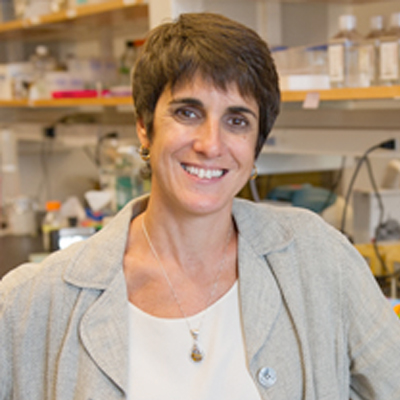From basic research to applied therapeutics, Dr. Hewett is developing therapies to facilitate rescue and repair
Recovery after brain injury can be painstaking for patients and their family members. Fortunately, recent research is getting at the heart of the cellular interactions that follow injury with specificity and detail. Dr. Sandra Hewett, the Beverly Petterson Bishop Professor of Neuroscience in the Department of Biology at Syracuse University, is focused on elucidating the molecular and biochemical mechanisms by which inflammatory factors become dysregulated during and following acute injury. She and her team are concentrating on how these factors regulate the interactions between neurons and astrocytes and either facilitate injury or mediate repair. Thus, her novel insights are leading to potential therapeutic targets for patients experiencing strokes, trauma, and epilepsy.
Dr. Hewett’s laboratory employs both in vitro and in vivo models of injury, which she refers to as “taking molecules to mouse” and “mouse to molecules” approach. Through the combination of these approaches, she and her team are able to identify potential therapeutic targets and test potential therapies as part of an applied research strategy. Furthermore, given her academic background in pharmacology, she is a basic scientist that is acutely aware and driven to produce information that can be translated to the clinic. This dual dedication to basic science and applications drives Dr. Hewett’s lab, which asks and answers questions at the basic science level that can inform human health.
Current research includes:
Stroke and Epilepsy: Dr. Hewett studies the physical and chemical interactions that occur between astrocytes and neurons in brain in response to injury and ultimately how this impacts neuronal survival, the outcomes of which result in the outward negative neurological symptomatology (e.g., confusion, paralysis, aphasia) associated with brain damage.
Cancer: Dr. Hewett and her team are trying to “tune down” certain proteins to make cancers more capable of being treated by chemotherapy and radiation.
Bio
Dr. Sandra Hewett was largely influenced by her mother, who never had the opportunity to go to college and for that reason, encouraged Dr. Hewett throughout her time as a student. She attributes her work ethic to her mom’s inspiration and example. While she originally planned to go to medical school, as an undergraduate, she worked at the Woman and Infants Hospital in Providence, Rhode Island, in the emergency department as well as in several research labs. While she enjoyed the work with patients while there, she began to understand that being a doctor would not satisfy her curiosity for discovery. Soon after, she fell in love with the long hours in the laboratory along with the autonomy of research. Therefore, she chose to move towards a career in biomedical science, where she could continue to ask probing questions that could ultimately affect patient care by making seminal discoveries at the bench.
During her postdoctoral studies, at the Washington University School of Medicine, Dr. Hewett began studying the mechanisms that underlie acute neuronal injury – particularly regarding stroke, which is caused by cerebral ischemia, or the loss of blood flow to the brain. She became fascinated by the potential that stroke could result in non-autonomous neuronal cell death – namely, that other cells in the brain could mediate the injury. Therefore, she began to explore how astrocytes respond to the injured environment and whether these cells contribute to neuronal cell death. These passions lead to a lifetime career and her current interests, an extension of this work.
Aside from research, Dr. Hewett enjoys spending time in the outdoors kayaking and riding her bike with her family. While active, her brain is always busy. In fact, she explains that on drives across the country, she and her husband, who is also an academic, will work out scientific problems on the back of gas station receipts. She also stays busy playing soccer, a sport she began playing while in graduate school.


